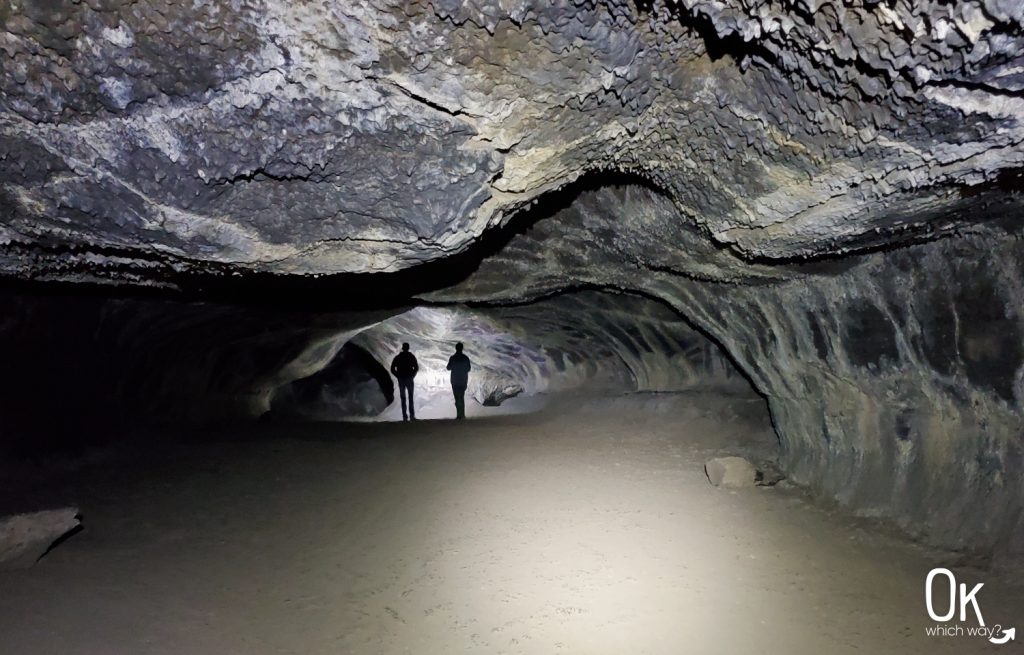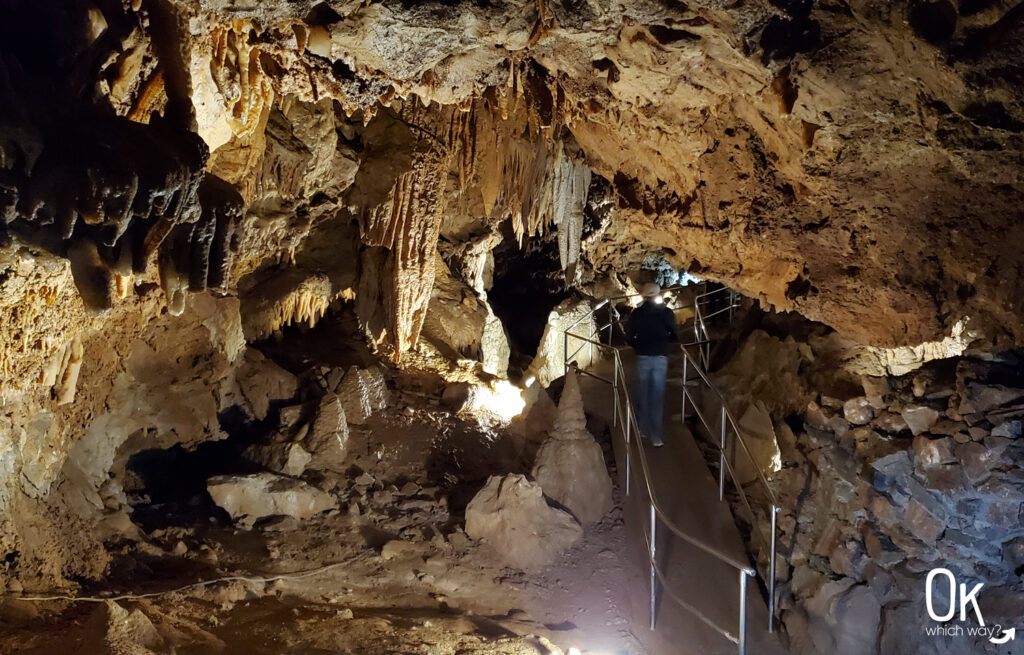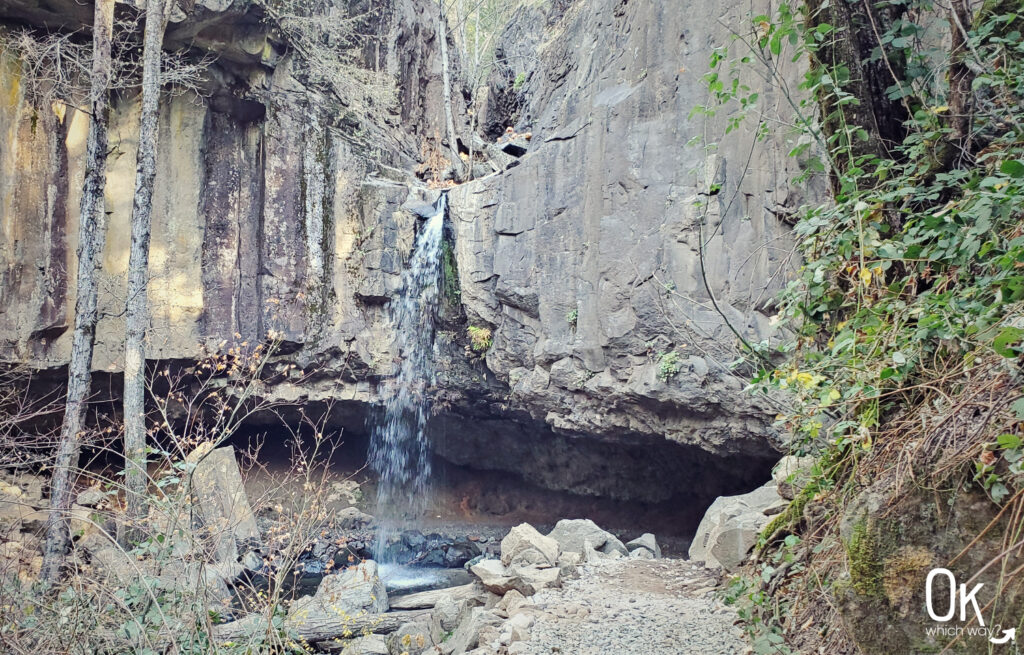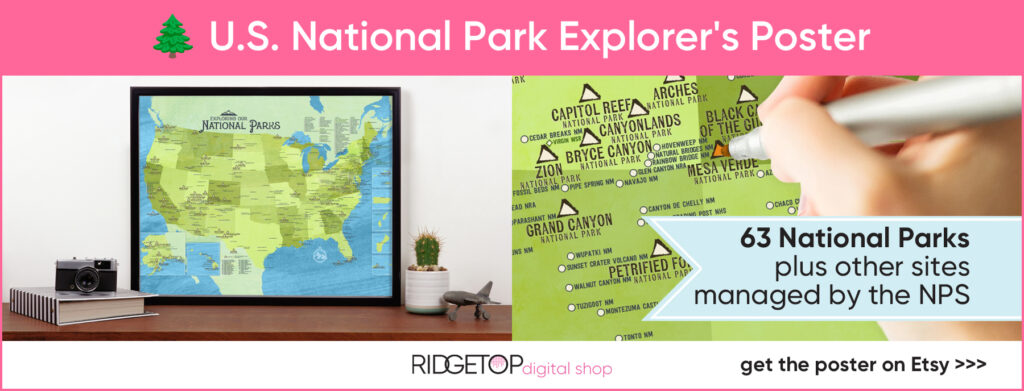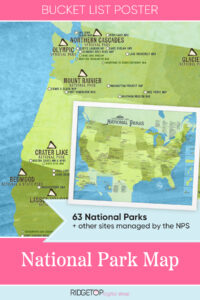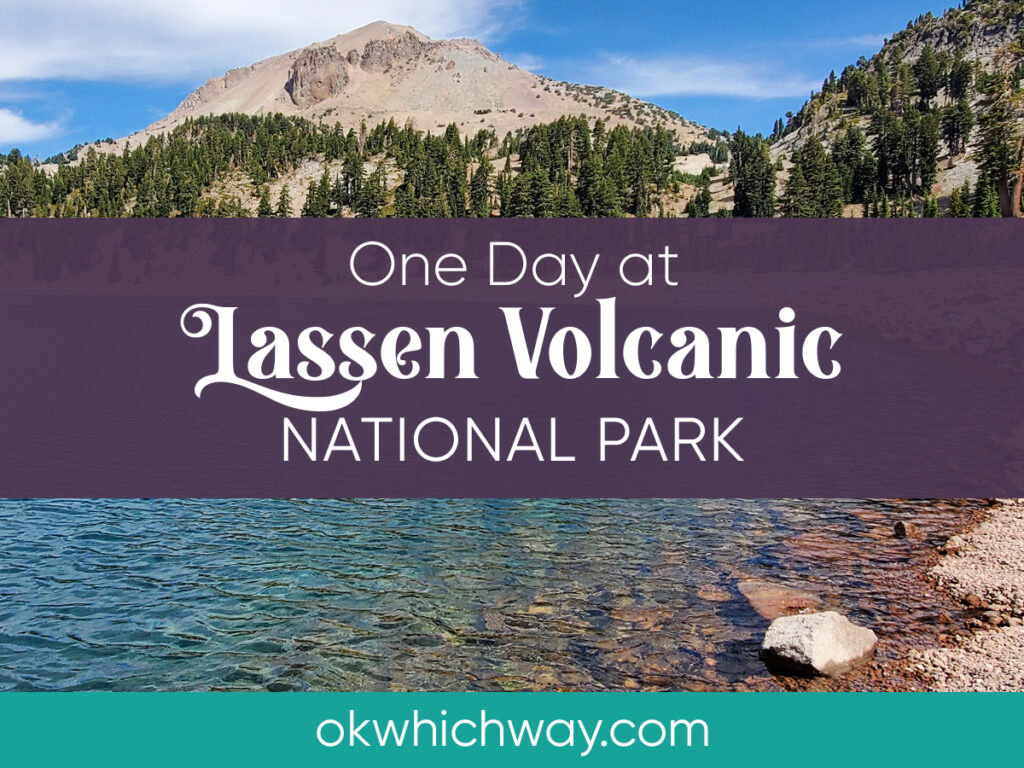
Lassen Volcanic National Park
Lassen Volcanic National Park is located a bit out of the way in northern California, about an hour and a half drive from Redding and three hours from Klamath Falls.
This post may contain affiliate links. When you make a purchase using one of these affiliate links, we get paid a small commission at no extra cost to you.
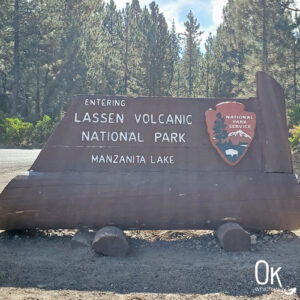
Park Info
Location: northern California. Hour and half SE of Redding
Established: Designated a National Park in 1916
Elevation: 5650′ +
Things to See: Lassen Peak, hydrothermal features, rim of a caldera
Things to Do: hike a cinder cone, rent a kayak at Manzanita Lake, snowshoe in the winter
Lodging/Camping: Lodging is available at Drakesbad Guest Ranch. Cabins are an option at Manzanita Lake. Multiple campgrounds are scattered throughout the park.
Food: Food options are available at the Kohm Yah-mah-nee Visitor Center, the Camper Store at the Manzanita Lake Campground, and Drakesbad Guest Ranch. Offerings are limited during the winter.
Dogs: Pets are welcome in parking areas, campgrounds, and picnic areas.
Entrance Fee: $30/vehicle click here to see current fee pricing
Park Maps: Link to park maps
Thinking about Going for a Hike?
Things to keep in mind when hiking Lassen Volcanic National Park:
1. The park is at a high elevation, which makes breathing more difficult. Be kind to yourself and allow a little extra time.
2. Many of the trails are exposed to the sun, so keep in mind sun protection and drink plenty of water.
3. Trust the experts in cautioning us that the hydrothermal areas are piping hot. Don’t touch them. The acid can irritate your skin even if it’s not hot.
Best Time to Visit
The park itself is open year round. Summer and Fall are the best time to visit, though, with easy access to all the park has to offer. During the winter, the Lassen National Park Highway is closed. You can enter the park from the south and stop at the Kohm Yah-mah-nee Visitor Center, as well as the Sulphur Works nearby. The Manzanita Lake area in the northern part of the park is also open. However, you can’t drive from one end to other like you can in the warmer months.
Transportation
You will need your own vehicle to travel through Lassen Volcanic National Park. There are not public shuttles in the park. Unleaded gas may be available at the Manzanita Lake Campground, but other than that there aren’t any fuel stations within the park. Two charging stations are in the visitor center parking lot.
Audio Tour
Using the NPS Mobile App, you can listen and learn during your drive through the park. Numbered markers are along the road indicating which section to listen to. Be sure to download the audio, as cell service is not great in park.
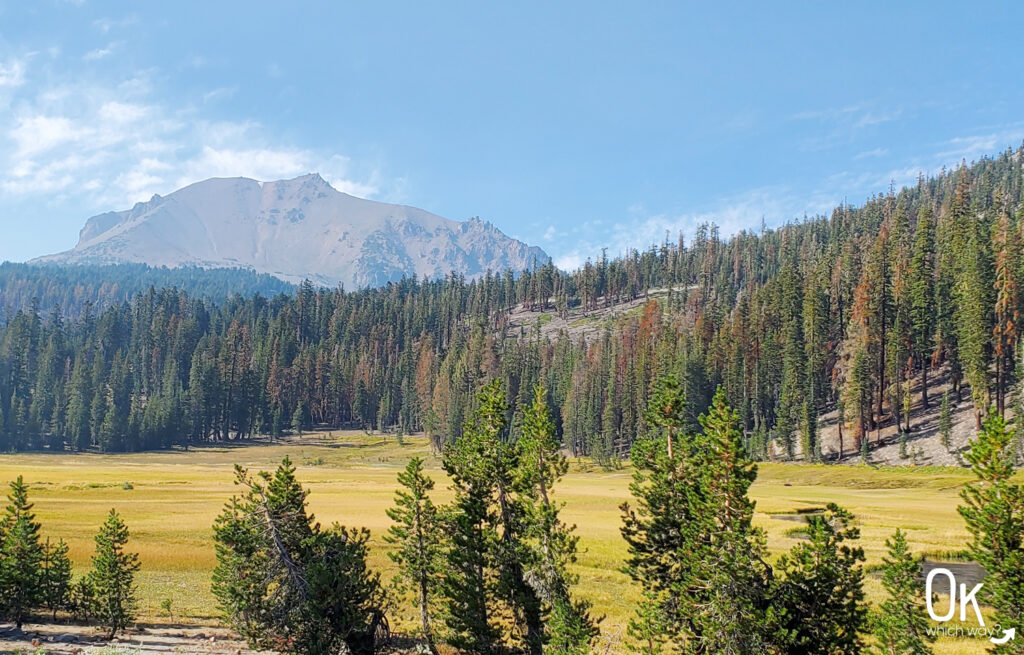
8 Things to See and Do in 1 Day
The park is divided into five sections. It is unlikely you will get to visit all five in one day. The easiest to visit in one day are the Manzanita Lake area and the Southwest Area. The Lassen Volcanic National Park Highway connects these sections and the road has been newly paved. The road is windy, but in great condition. It takes about an hour to drive from one end to the other.
1. Visit the Loomis Museum
The Loomis Museum is located near the NW entrance, so will likely be your first stop or your last. The building was constructed in 1927 of native stone and concrete. Stop in to view geological and native american exhibits, watch the park film, stamp your Passport To Your National Parks book, or purchase a souvenir.
In 1975, the Loomis Museum was added to the National Register of Historic Places.
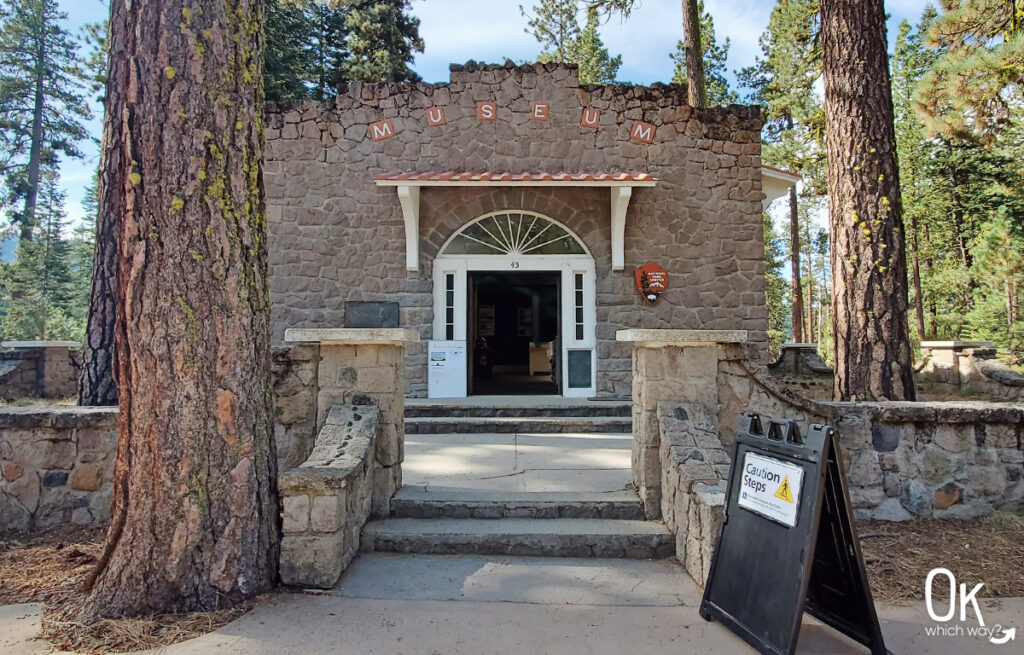
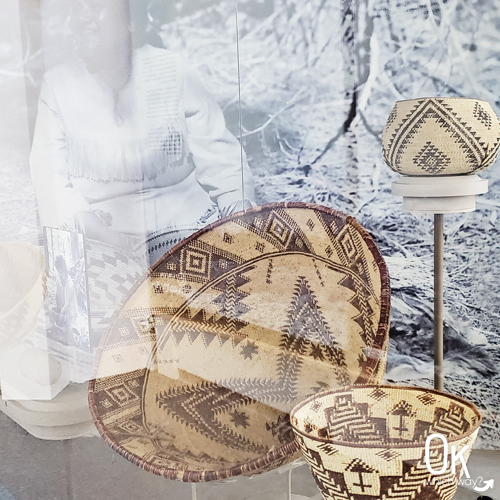
2. Gaze at Chaos Crags and Chaos Jumbles
There is a pull-out along the highway to stop and look at Chaos Crags. Chaos Crags was a cinder volcano that formed a dome over its vent and erupted 1000 years ago. 350 years ago a huge rock slide, known as Chaos Jumbles, sent rocks down the mountain burying the original forest. The rocks moved with such force they reached and damned Manzanita Creek, creating Manzanita Lake.
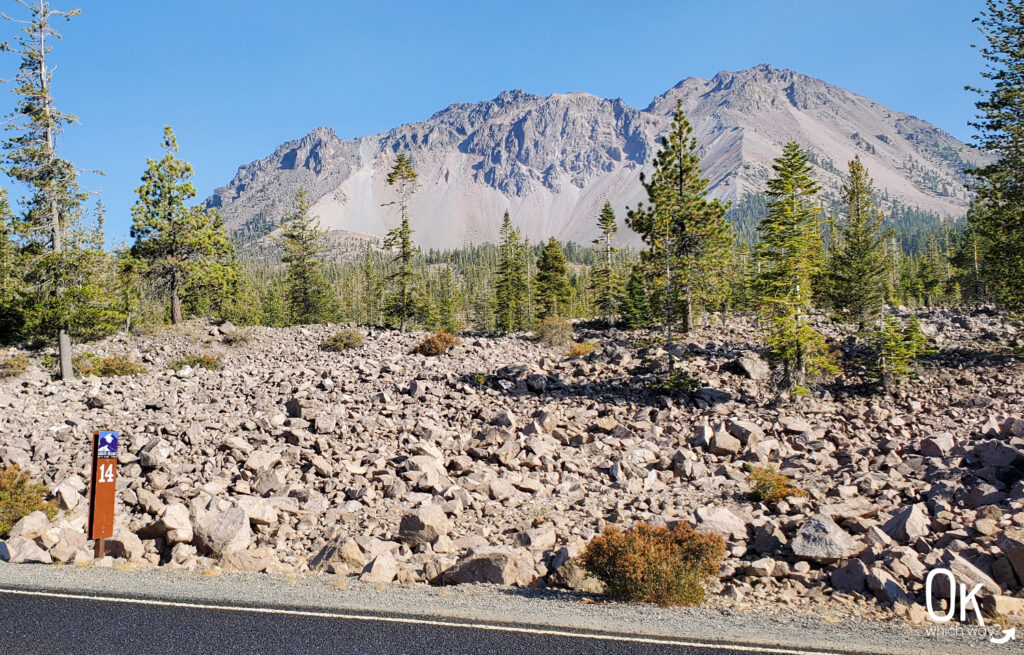
3. Admire Lassen Peak
Lassen Peak is the southern most active volcano within the Cascade Mountain Range and is considered the most likely to erupt within the next century. It can be viewed from many places throughout the park. It is 10,457 feet high and known as the world’s largest plug dome volcano. The largest, most recent, eruption occurred in 1915, but minor activity continued through 1921.
The Lassen Peak Trail is a strenuous 5 mile round trip hike that guides you to the summit and down into the crater.
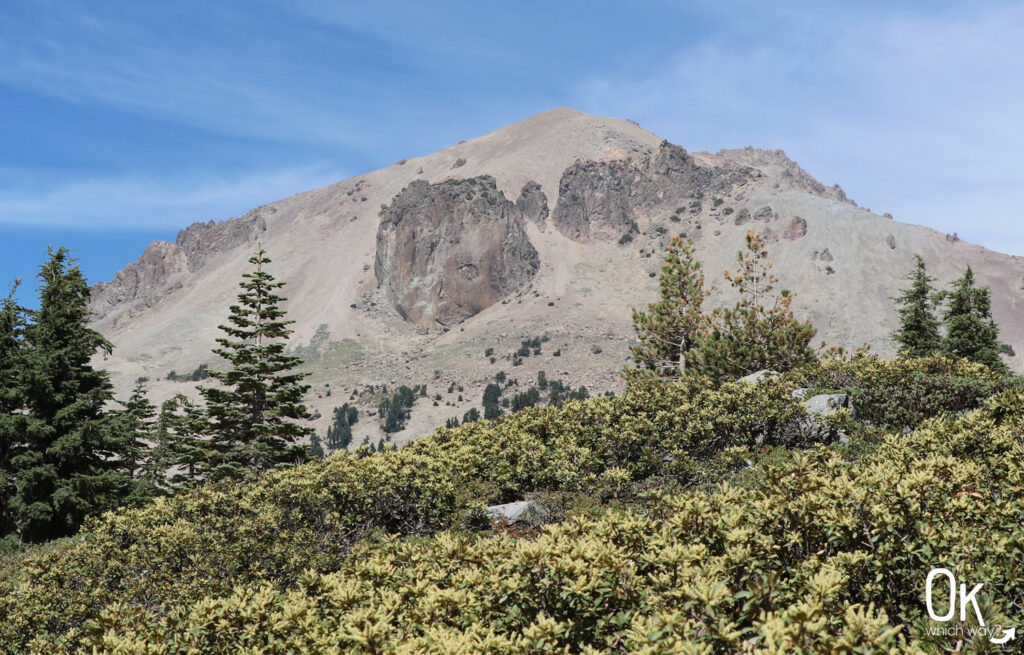
On the south side of Lassen Peak is a jagged formation known as Vulcan’s Eye. It is 500 feet tall, 500 feet wide, and named after the Roman god of fire, Vulcan.
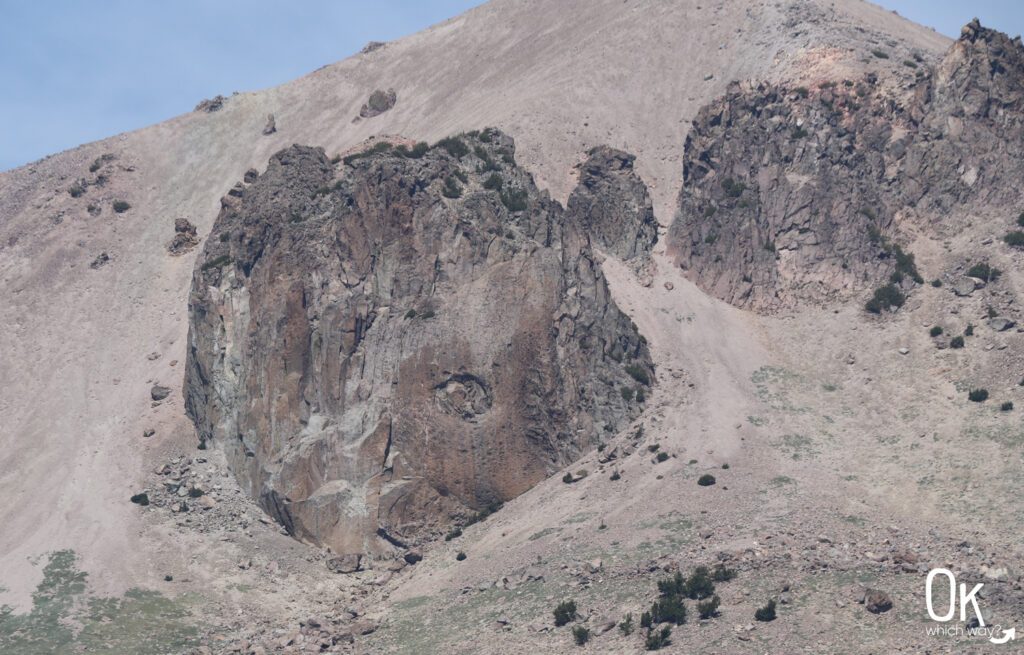
4. Walk the Devastated Area Trail
The Devastated Area Trail is a half mile easy loop showcasing the rocks that fell when Lassen Peak erupted. Many of these rocks were torn from the mountain, then tumbled their way downhill as far as 3 miles away.
The eruptions from Lassen Peak affected 1500 acres. The Mt. St. Helens eruption affected 153,000 acres.
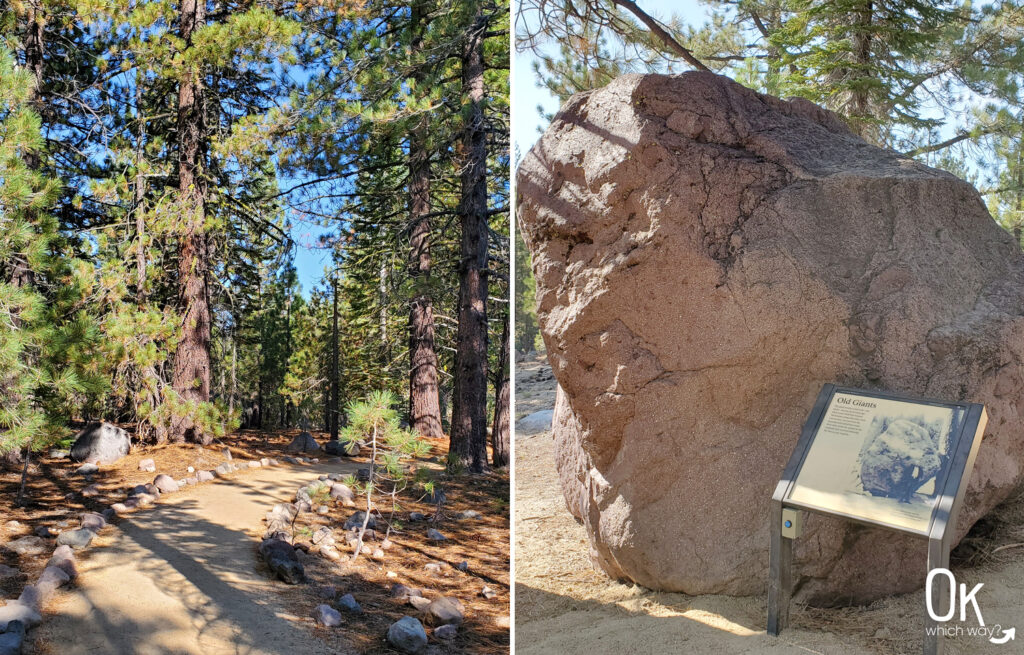
5. Spend Some Time at a Lake
Lake Helen, Summit Lake, and Manzanita Lake are all great options for taking a break from driving. They have picnic tables, restrooms, and the views are amazing.
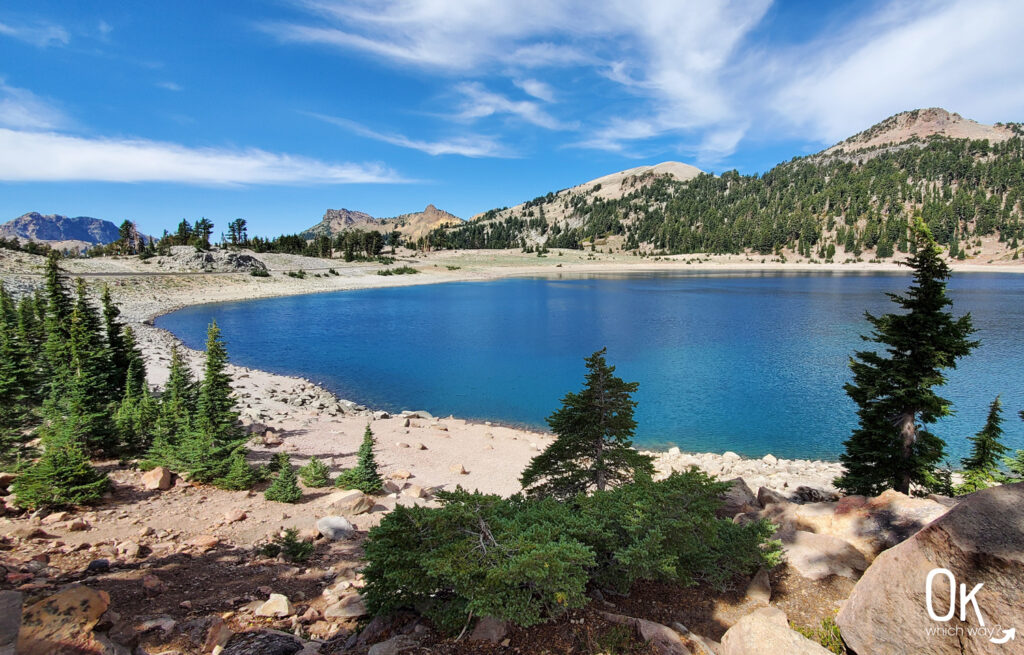
6. Hike the Bumpass Hell Trail
The Bumpass Hell trailhead parking lot was, by far, the busiest place in the park. Understandably, so. It is a 3 mile out and and back trek that displays the largest concentration of hydrothermal features in the park. It took me about 2 hours to complete the hike.
Other hikes to consider in this area of the park are the Kings Creek Falls trail and Cold Boiling and Crumbaugh Lakes Trails.
Sections of the California National Historic Trail and the Pacific Crest Trail also travel through the park.
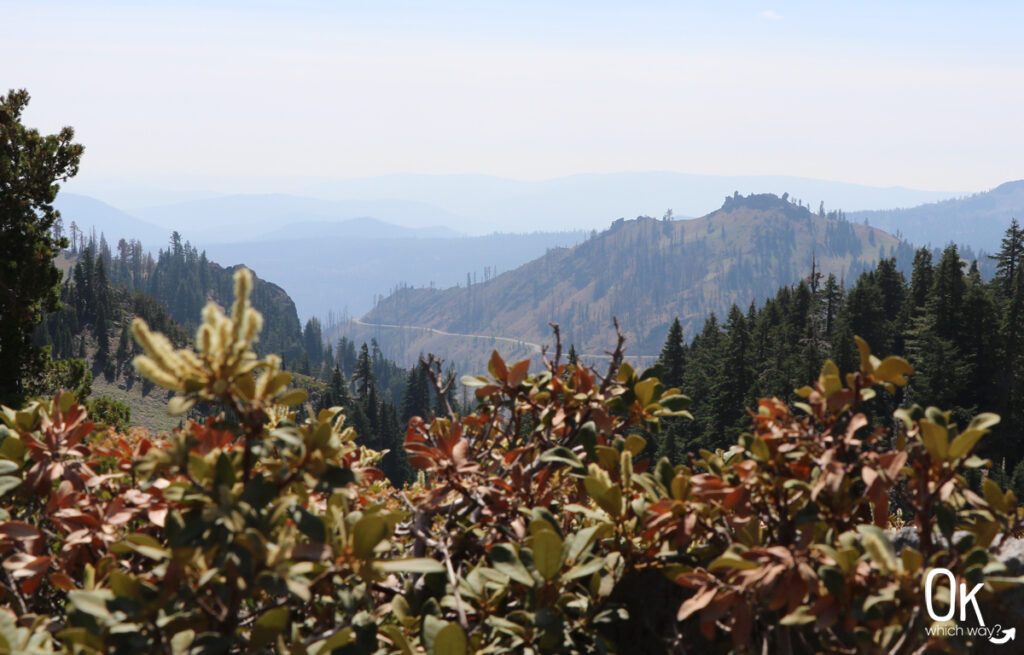
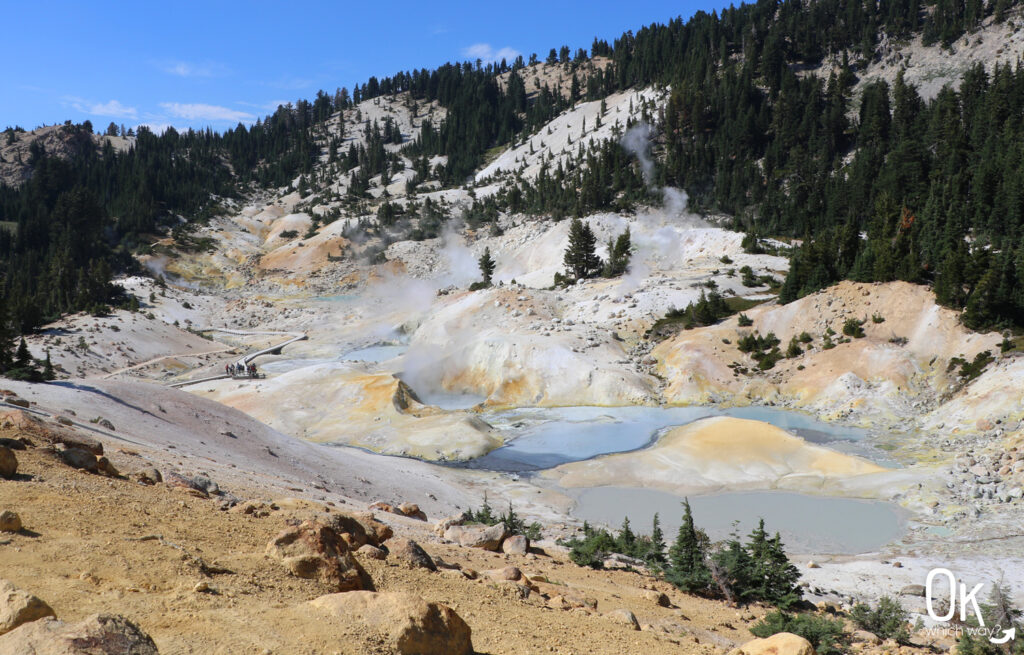
7. Stop at the Sulphur Works
The Sulphur Works area was one of my favorite stops in the park. Park your car in the lot, then walk on the sidewalk to see some very cool hydrothermal features. This is a super easy way to see steam vents and mudpots.
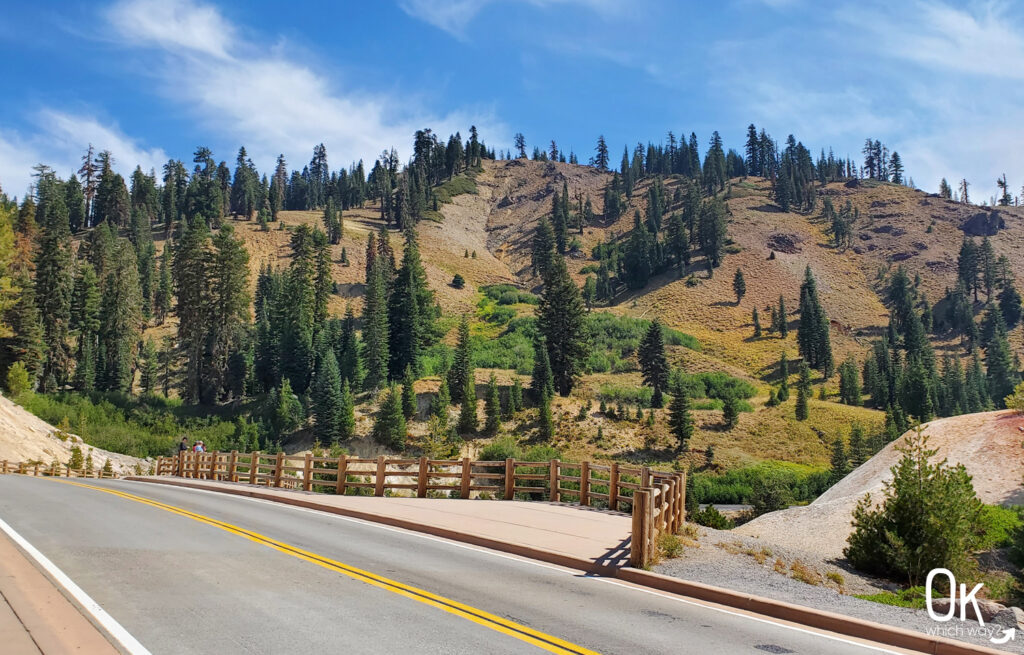
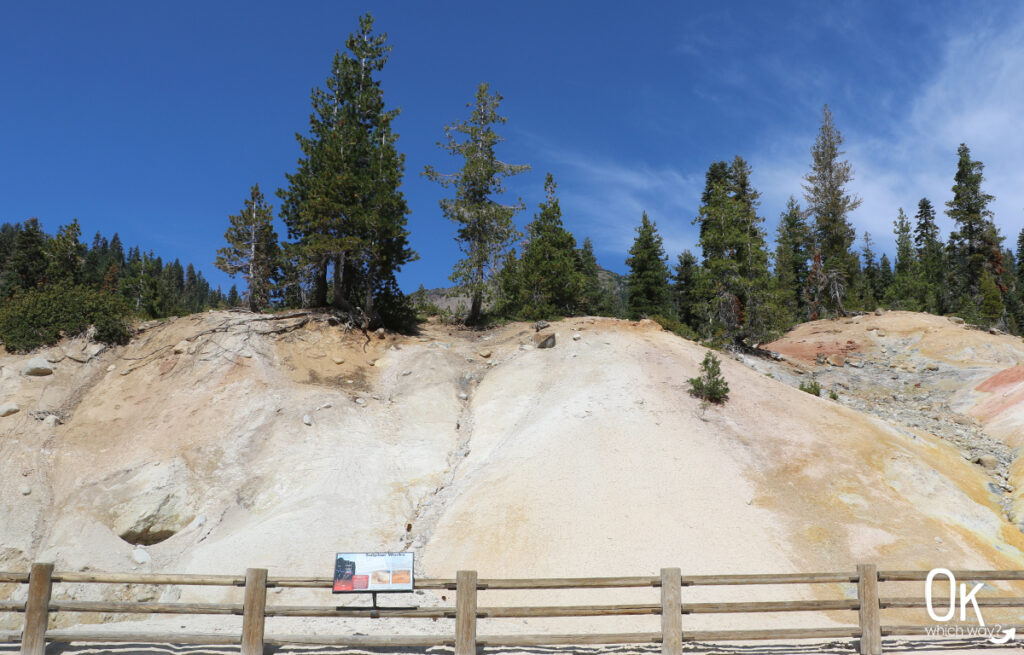
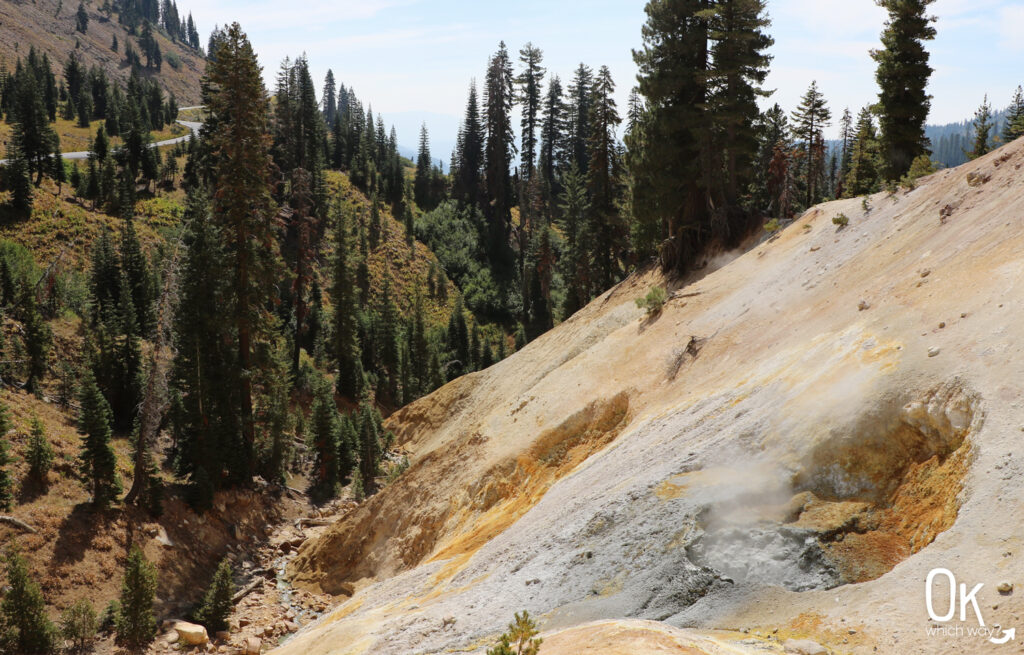
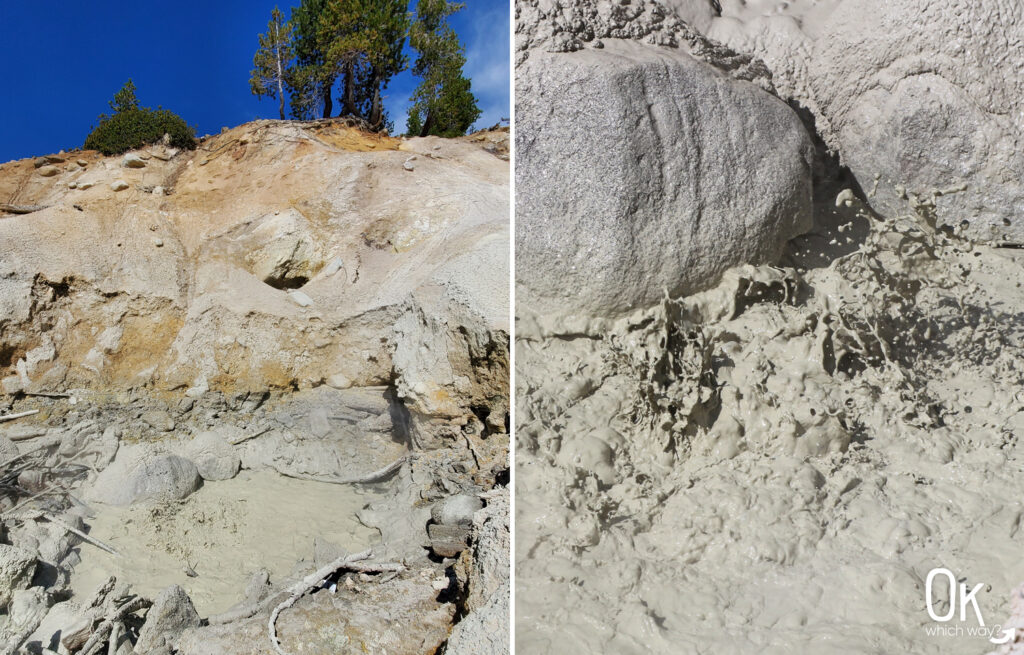
8. Kohm Yah-mah-nee Visitor Center
The Kohm Yah-mah-nee Visitor Center is located near the SW entrance to the park and has the most amenities. There is an exhibit hall and auditorium, a gift shop, and a cafe.
A peak through the window shows a couple of the mountains that form the perimeter of what was once Mount Tehama, also known as Brokeoff Volcano. Yep, the visitor center is situated inside the caldera.
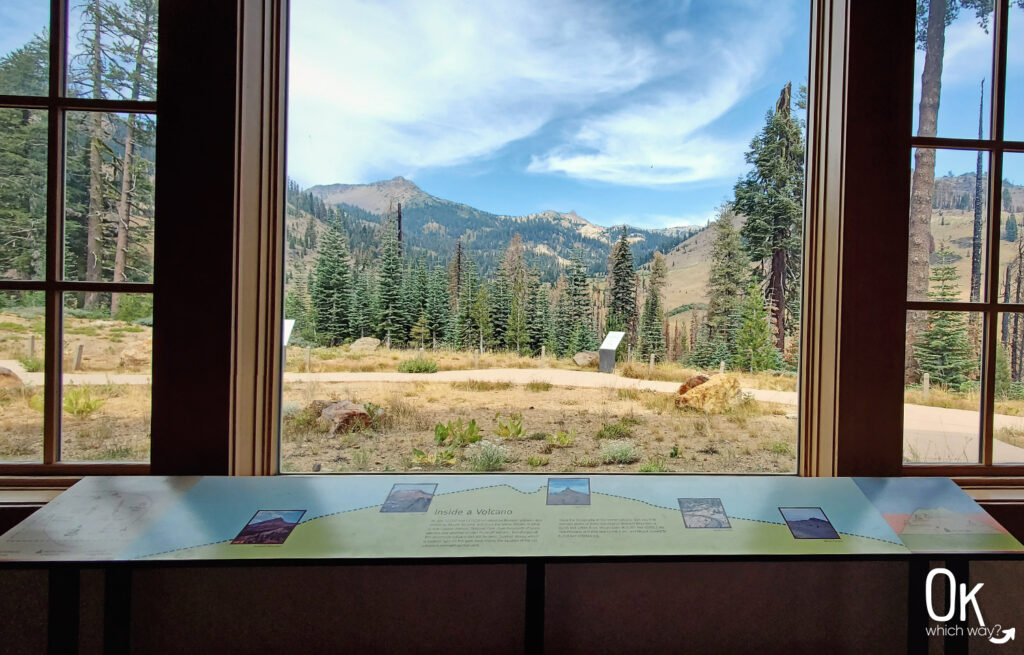
Outside the visitor center is a paved path highlighting the geological timeline of Lassen Volcanic National Park.
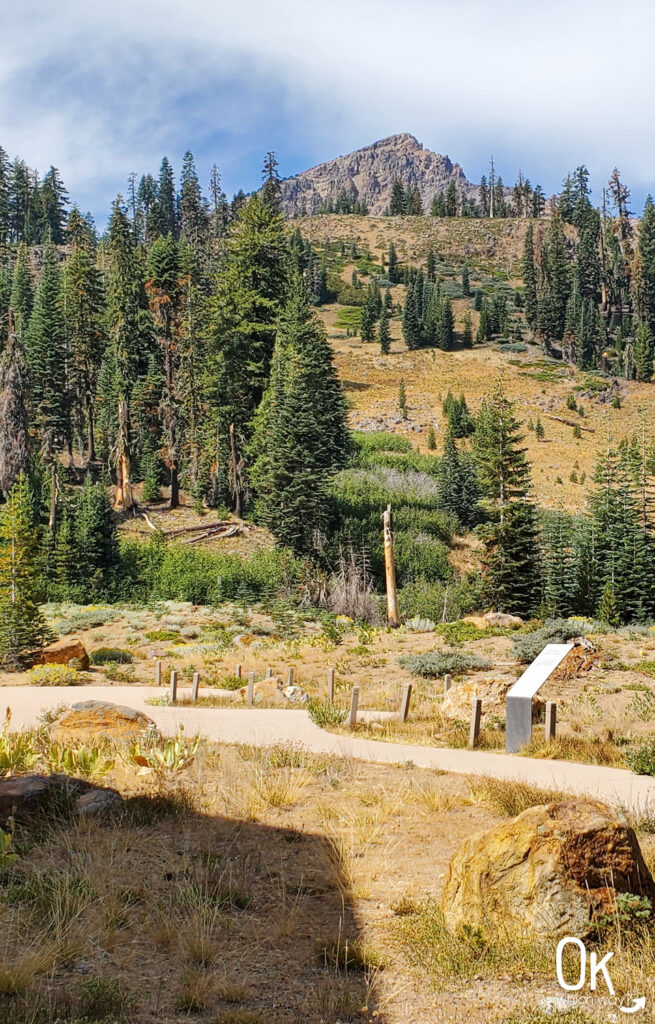
Optional Items to Bring
- 10 Essentials
- Collapsible Hiking Poles
- Portable Solar Charger
- Sun Protection
Circle of Discovery Road Trip
Lassen Volcanic National Park is one of 7 national park sites located in southern Oregon and northern California:
- Crater Lake National Park
- Tule Lake National Monument
- Lava Beds National Monument
- Lassen Volcanic National Park
- Whiskeytown National Recreation Area
- Redwood National and State Parks
- Oregon Caves National Monument
Native Americans
Lassen Volcanic National Park and surrounding areas are within the traditional territory of the Atsugewi, Maidu, Yana, and Yahi tribes. Atsugewi descendants still live nearby.
Geology
The Lassen Peak region is part of the Ring of Fire, a chain of volcanoes that surround the Pacific Ocean.
Unlike the Rocky Mountains, which are made of solid rock, most volcanoes in the Cascade Range have been formed as the Juan De Fuca oceanic plate moves under the North American continental plate. The oceanic plate fall into the Earth’s mantle and part of the mantle melts. This melted rock, known as magma, works its way to a weak spot and breaks through the Earth’s surface, becoming a volcano. As the volcano continues to erupt, it gets bigger. A chain of volcanoes is formed because the plates continue to move. As more magma continues to come to the surface, new volcanoes will be formed.
Lassen is home to all four types of volcanoes – cinder cone, composite, shield, and plug dome.
Magma can take thousands of years to cool. As it cools, gases are released, heating the surface water and creating hydrothermal features such as geysers, fumaroles, bubbling water, hot springs, and mudpots.
Volcanic Legacy Scenic Byway
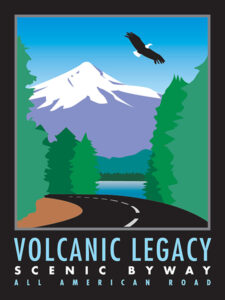
The highway through Lassen Volcanic National Park is part of the Volcanic Legacy Scenic Byway. This All-American Road travels through southern Oregon and northern California highlighting a number of volcanoes and National Parks including Crater Lake National Park and Lava Beds National Monument.
Thinking About Exploring Lassen Volcanic National Park?
Pin This to Help Plan Your Trip ⬇
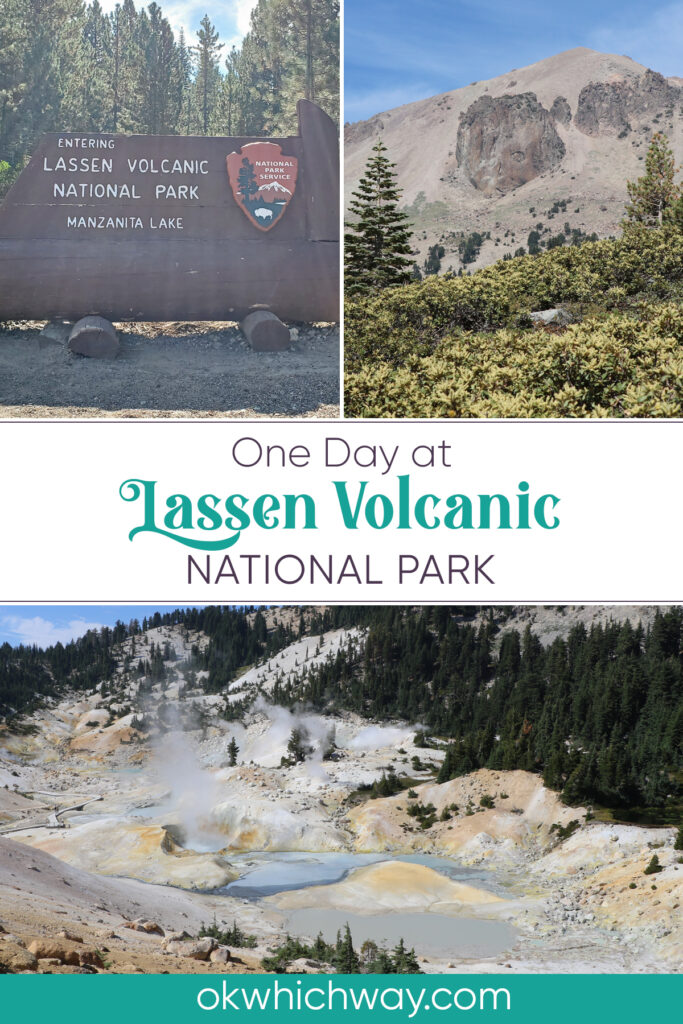
Other Places to Visit in Northern California

